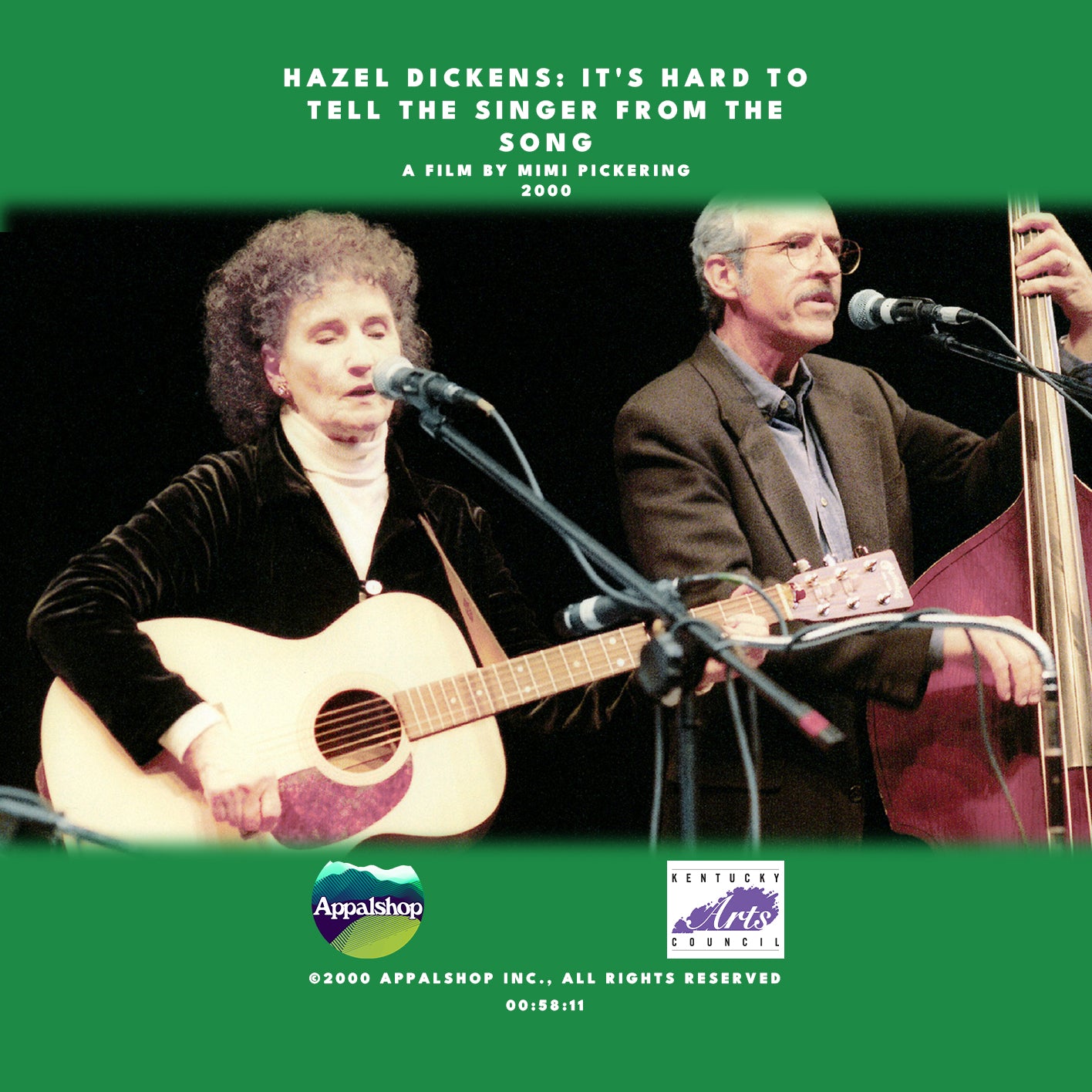Appalshop Inc.
Hazel Dickens: It's Hard to Tell the Singer From the Song
Hazel Dickens: It's Hard to Tell the Singer From the Song
Couldn't load pickup availability
Mimi Pickering. 2000. Betacam SP video.
From the coalfields of West Virginia to the factories of Baltimore, Hazel Dickens has lived the songs she sings. A pioneering woman in bluegrass and country music, Hazel influenced generations of songwriters and musicians with songs of hard work, hard times, and hardy souls. The National Endowment for the Arts awarded her a National Heritage Fellowship in 2001, and the Washington Post has described her as “a living legend of American music, a national treasure," one who has bolstered working people at picket lines and union rallies throughout the land with piercing vocals that powered the soundtracks for films Harlan County USA and Matewan. The film features interviews with Hazel and fellow musicians such as Alison Krauss, Naomi Judd, and Dudley Connell, interwoven with archival footage, recent performances, and 16 powerful songs including Mama’s Hand, Working Girl Blues, and Black Lung. Hard To Tell The Singer From The Song profiles a modern woman dealing with contemporary issues from a feminist perspective that is the product of her experiences being Appalachian, being displaced physically and culturally, being poor and working class, being a woman artist in a man’s world — and being a bearer of tradition.
“The film is among the most graceful to come out of Appalshop. It definitely does justice to the raw honesty of Dickens’ words and the truth of her experience.”— Ozark Foothills Film Festival
“The screening was great. Just about everyone in the theater gathered in the lobby afterwards to talk about the greatness of Hazel and Mimi’s film.”— Gene Siskel Film Center, Art Institute of Chicago
“Impressive.”— No Depression magazine
All films in the Appalshop collection are protected under Title 17 of the United States Copyright Law. The unauthorized distribution or public performance of copyrighted works constitutes copyright infringement under the Copyright Act, Title 17 U.S Code Section 106(3)-(4). This conduct may also violate the Berne Convention for the Protection of Literary and Artistic Works and The Universal Copyright Convention, as well as bilateral treaties with other countries that allow for protection of Rights Holder copyrighted works even beyond US borders. To receive rights for public performance of our works, including educational or institutional licensing, please contact Appalshop Sales to complete the purchase at 606-633-0108 or sales@appalshop.org.
You can learn more about Appalshop and our work at www.Appalshop.org
Share


